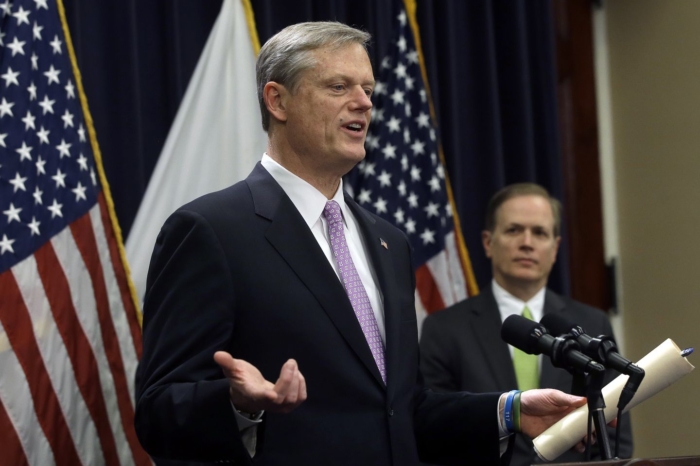Tell state & school leaders to ensure our kids get a quality education this fall!
/0 Comments/in News /by Editorial Staff Share on Facebook
Share on Twitter
Share on
LinkedIn
+
As the coronaviruscontinues in Massachusetts this fall, the education of our children should be atop priority for our state & school district leaders. Many schools didn’tcontinue rigorous instruction during the shutdown.
They didn’t provide dailyschedules, take attendance or ensure daily interaction between teachers andstudents – as a result, our kids lost a third of their academic year.
MA state &district leaders are making school re-opening plans now, that could includeat-home schooling and hybrid options in the fall.
Sign the petition below and tell them that our kids need to continue to learn even if they’re not in a school building.
View our additional education resources:

John Steele Gordon on America’s Economic Rise
This week on The Learning Curve, guest co-hosts Charlie Chieppo and Derrell Bradford interview John Steele Gordon, the author of 10 books on business, economic, and technology history. They discuss the keys to America’s transformation into the world’s foremost economic power and its economic prospects for competitiveness in the twenty-first century.

Dr. Ramachandra Guha on Gandhi’s Enduring Legacy
This week on The Learning Curve, guest co-hosts Charlie Chieppo and Mariam Memarsadeghi interview writer and biographer Dr. Ramachandra Guha. The author of the definitive two-volume biography of Mohandas K. Gandhi, Guha discusses Gandhi’s formative educational experiences, spirituality, political leadership, and philosophy of nonviolent resistance.

Paul Vallas on Chicago, School Reform, and Teachers’ Unions
This week on The Learning Curve, guest co-hosts Charlie Chieppo and Mary Tamer, executive director of Democrats for Education Reform, Massachusetts, speak with Paul Vallas, former CEO of the Chicago Public Schools and a candidate for mayor of that city earlier this year.

U-Ark. Prof. Albert Cheng on Classical Education & School Choice
This week on The Learning Curve, guest co-hosts Charlie Chieppo and Alisha Searcy speak with Albert Cheng, an Assistant Professor at the Department of Education Reform in the College of Education and Health Professions at the University of Arkansas. Professor Cheng talks about the importance of classical education for guiding educational philosophy and practice and shaping the character of students.

Professor Jay Parini on Thirteen Books That Changed America
This week on The Learning Curve, Jay Parini, Professor of English and Creative Writing at Middlebury College, discusses his book Promised Land: Thirteen Books That Changed America, detailing how William Bradford’s Of Plymouth Plantation, The Federalist Papers, and the works of Thoreau, Stowe, Twain, Du Bois, and others have shaped the American mind, character, and identity.

Colossal Academy’s Shiren Rattigan on Microschools and School Choice
This week on The Learning Curve, guest co-hosts Charlie Chieppo and Kendra Espinoza interview Shiren Rattigan of Colossal Academy, a microschool in Florida. They discuss how Shiren became interested in K-12 education and how and why the COVID-19 pandemic led to her founding a microschool.

U.K. Cambridge’s Prof. David Abulafia on Oceans, Seas, & Global Trade
This week on The Learning Curve, Professor David Abulafia from Cambridge University discusses the many roles of the world’s oceans in human history and trade. He focuses on how the Pacific, Indian, and Atlantic oceans, along with the Mediterranean Sea, have spurred the rise of civilizations. He concludes with a reading from his book The Boundless Sea: A Human History of the Oceans.

Dr. Peter Wood on Diversity and Anger in America
This week on The Learning Curve, Dr. Peter Wood, president of the National Association of Scholars, discusses the invention of the modern concept of diversity, the history of U.S. Supreme Court rulings on the concepts of diversity and race in college admissions, and how a culture of anger seems to pervade American life.

UConn’s Prof. Manisha Sinha on The Slave’s Cause: A History of Abolition
This week on The Learning Curve, UConn Professor Manisha Sinha discusses the influential figures and seminal events that created the abolitionist movement. She describes the legacy of the transatlantic slave trade, Harriet Tubman and the Underground Railroad, the passage of the Thirteenth Amendment, and other key moments in the fight to end slavery.

Pulitzer Winner Tamara Payne on the Life and Legacy of Malcolm X
This week on The Learning Curve, guest cohosts Alisha Searcy and Mariam Memarsadeghi interview Tamara Payne, award-winning biographer, about Malcolm X. They delve into his early life, rise in the Nation of Islam, civil rights movement involvement, pilgrimage, assassination, and ongoing legacy debate. Ms. Payne concludes with a reading from her book.

Johns Hopkins’ Dr. David Steiner on Teaching Wisdom in Schools
This week on The Learning Curve, guest cohosts Charlie Chieppo and Alisha Searcy join Dr. David Steiner for a wide-ranging discussion about the importance of education as a means of transmitting enduring wisdom to young people.

Pulitzer Winner Stacy Schiff on Samuel Adams & American Independence
This week for the Fourth of July, the Learning Curve interviews Pulitzer Prize-winning biographer Stacy Schiff, who explores the American revolutionary Samuel Adams. She discusses Adams’ background, religion, and formative intellectual development, including the influences that Greco-Roman history, the Bible, and Enlightenment thinkers had upon his life and political thought.



